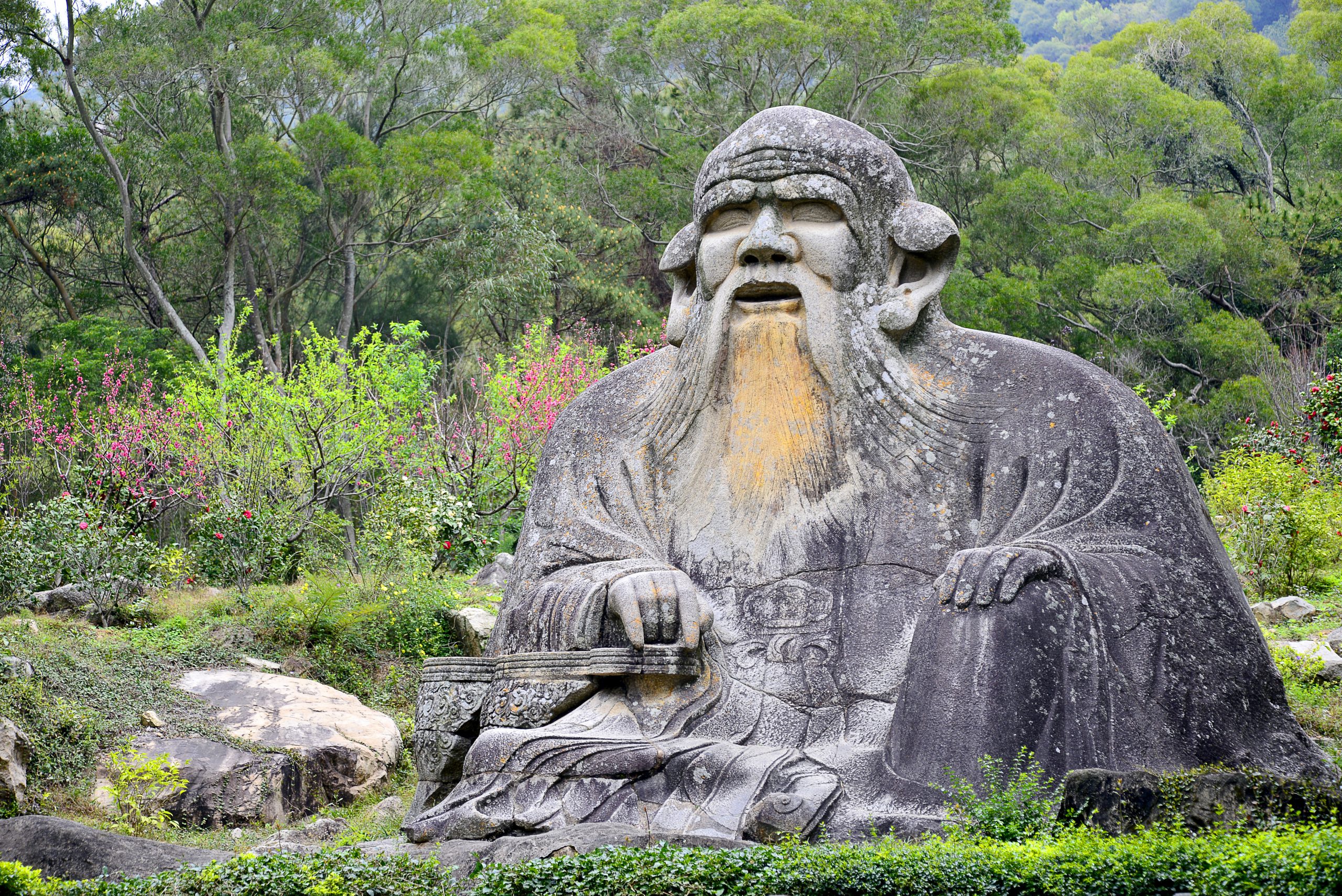Taoism is a Chinese philosophy and religion that emphasizes living in harmony with the natural world and following the “Way” (Tao) of the universe. Taoism originated in ancient China and has had a significant influence on Chinese culture and thought for over 2,000 years.
Taoism is based on the teachings of the ancient Chinese philosopher Lao Tzu, who wrote the Tao Te Ching, a collection of philosophical poems that are considered the foundational texts of Taoism. The Tao Te Ching emphasizes the importance of living in harmony with the natural world and the concept of “wu wei,” which means “non-action” or “effortless action.” This means that one should strive to act in a natural, spontaneous way and avoid striving or trying too hard.
Taoist beliefs and practices include the pursuit of inner peace, the cultivation of personal virtue, and the practice of various spiritual and physical disciplines such as meditation, yoga, and martial arts. Taoism also includes the belief in deities and the practice of ancestor worship.
Taoism has had a significant influence on other areas of East Asian culture, including art, literature, and medicine. It is also a popular religion among some people in the West who are attracted to its emphasis on spiritual growth and living in harmony with the natural world.
In Taoism, the concept of flow refers to living in harmony with the natural rhythms and patterns of the universe. This involves letting go of desires and ego, and instead embracing a sense of openness, flexibility, and adaptability.

The Flow
The idea of flow is closely related to the concept of “wu wei” in Taoism, which means “non-action” or “effortless action.” This means that one should strive to act in a natural, spontaneous way and avoid striving or trying too hard. Instead of striving for control, one should aim to find balance and harmony with the natural world.
To cultivate a sense of flow in one’s life, Taoists may practice various spiritual and physical disciplines such as meditation, yoga, and martial arts. These practices can help one develop awareness, focus, and presence of mind, which can in turn help one to better align with the flow of the universe.
In addition to these practices, Taoists may also seek to cultivate virtues such as compassion, humility, and contentment, which can help one to live in harmony with others and the natural world. By living in this way, one can experience a sense of peace and fulfillment in life.
Simple Life
In Taoism, the idea of living a simple life is closely related to the concept of living in harmony with the natural world. Taoists believe that by living simply, one can avoid the distractions and excesses of modern life and focus on what is truly important.
To live a simple life in the Taoist tradition, one may seek to minimize possessions, reduce one’s reliance on technology and material goods, and live in a way that is mindful and respectful of the natural world. This may involve living in a simple home, practicing minimalism, and embracing a lifestyle that is sustainable and self-sufficient.
In addition to living simply, Taoists may also seek to cultivate virtues such as compassion, humility, and contentment, which can help one to live in harmony with others and the natural world. By living in this way, one can experience a sense of peace and fulfillment in life.
Overall, the idea of living a simple life in Taoism is about finding balance and harmony with the natural world, and letting go of the distractions and excesses that can often interfere with our sense of well-being and happiness.
How to Practice
There are many ways to practice Taoism and incorporate its teachings into your daily life. Here are a few suggestions:
- Read and study the Tao Te Ching: The Tao Te Ching is a collection of philosophical poems that are considered the foundational texts of Taoism. Reading and reflecting on these texts can help you better understand the teachings and principles of Taoism.
- Practice mindfulness and presence of mind: Taoism emphasizes living in the present moment and letting go of distractions and ego. You can practice mindfulness by paying attention to your breath, your body, and your surroundings in a non-judgmental way.
- Cultivate virtues: Taoism emphasizes the importance of cultivating virtues such as compassion, humility, and contentment. You can practice these virtues by being kind and compassionate towards others, and by letting go of ego and a need for recognition.
- Practice spiritual and physical disciplines: Taoism includes various spiritual and physical disciplines such as meditation, yoga, and martial arts. These practices can help you develop awareness, focus, and presence of mind, which can in turn help you to live in harmony with the natural world.
- Seek guidance from a teacher or mentor: If you are interested in practicing Taoism more seriously, you may consider seeking guidance from a teacher or mentor who can provide guidance and support on your spiritual journey.
Remember, the most important thing is to find practices that feel meaningful and authentic to you. The goal is to incorporate the teachings of Taoism into your daily life in a way that helps you to live in harmony with the natural world and find inner peace and fulfillment.




